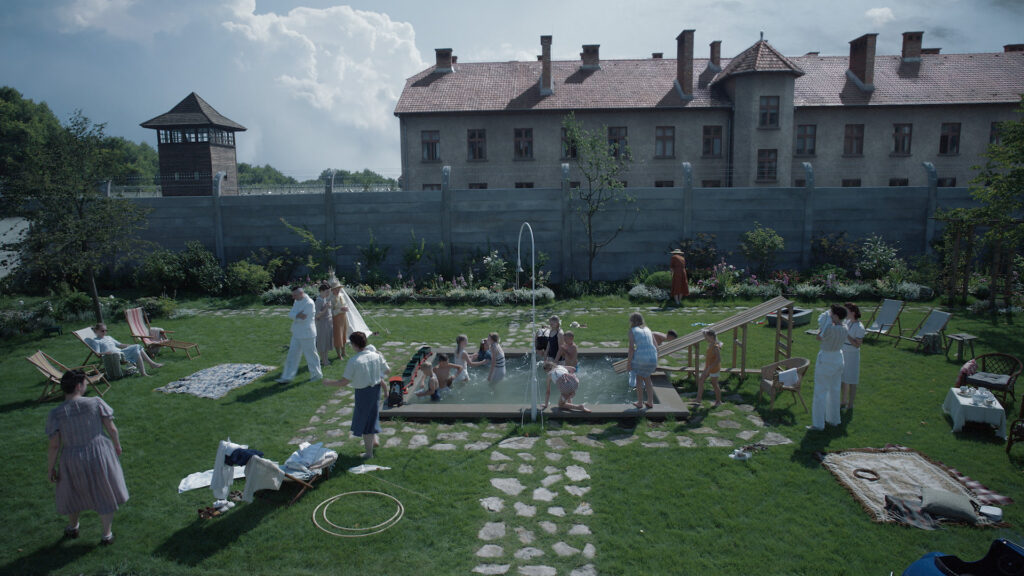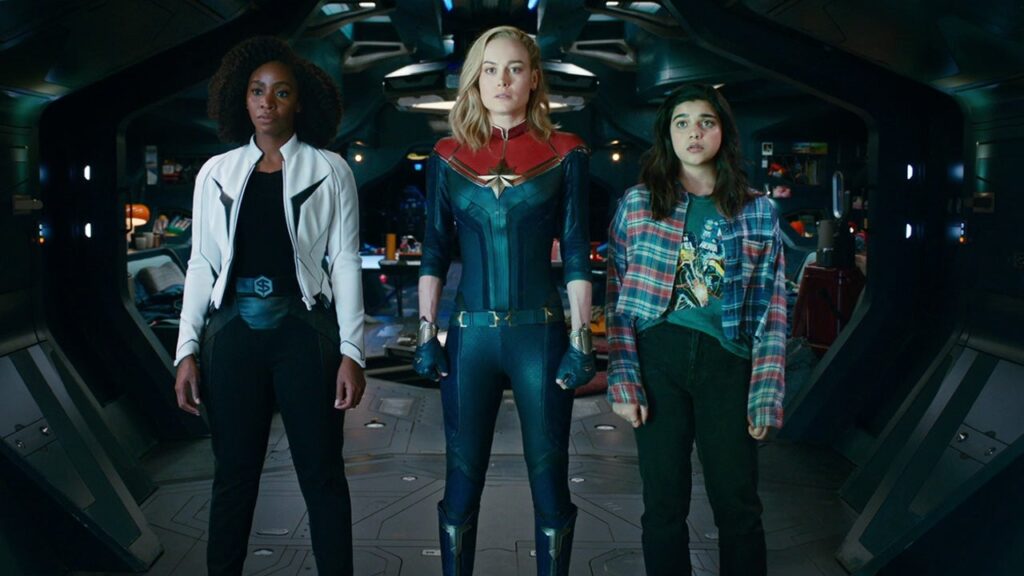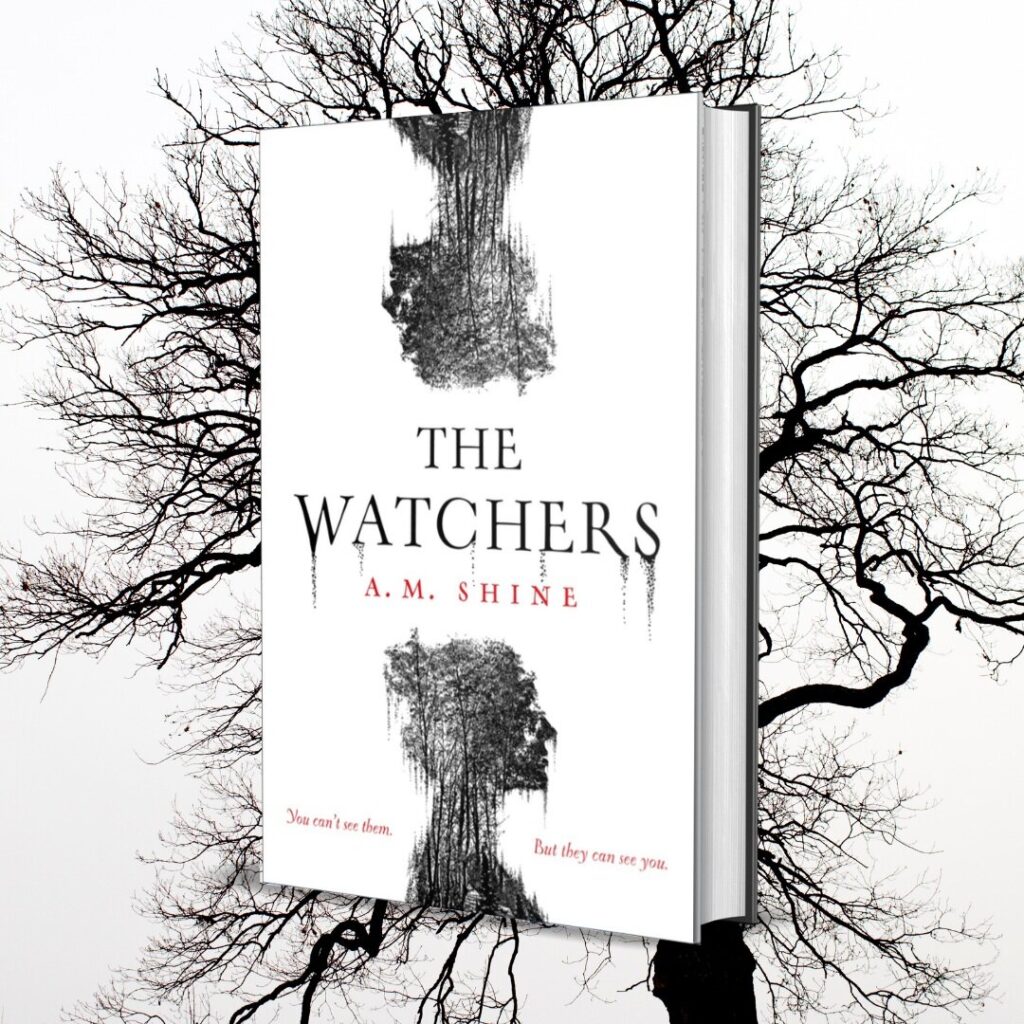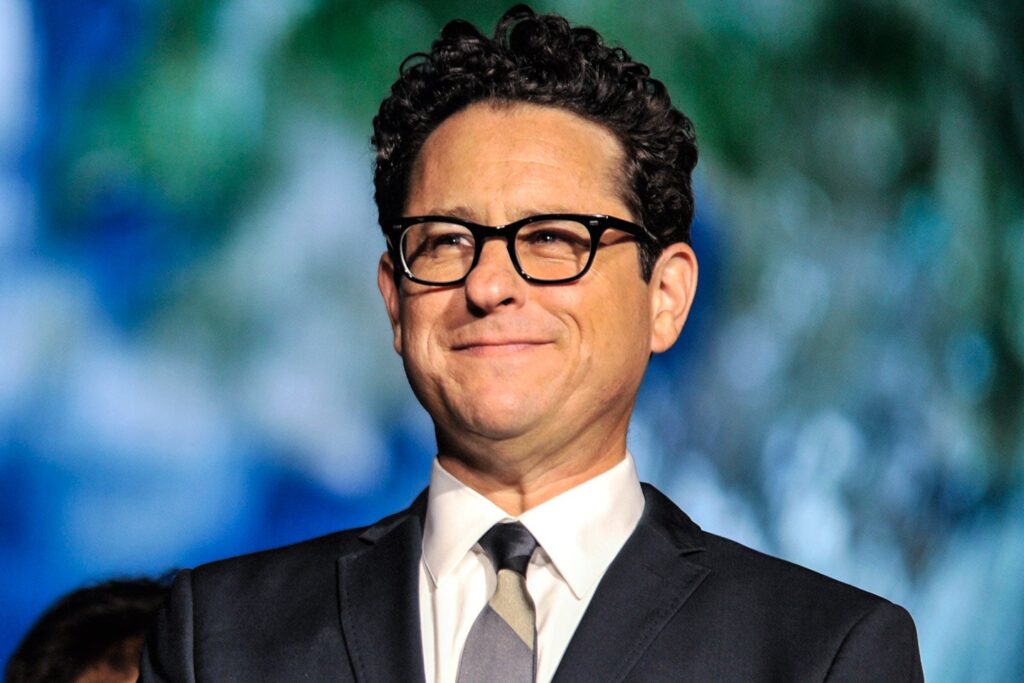Search Results for: 10 tips from
How did one of my most anticipated films of the year hold up to all that expectation??
Genre: War/Drama/Period
Premise: A wealthy German family goes about their daily lives living several feet away from the Auschwitz concentration camp during World War 2.
About: This film won the esteemed Grand Prix at the Cannes film festival. Director Jonathan Glazer wanted things to feel so realistic in his film that he set up 10 cameras throughout the home his characters lived in and would do 90 minute takes where the characters would just walk around the house and improvise lines.
Writer: Jonathan Glazer (based on the novel by Martin Amis)
Details: 1 hour and 45 minutes (feels like 5 hours and 45 minutes)

It’s the holiday season.
What better way to celebrate than with a Holocaust movie!?
I’ve been looking forward to this film ever since I heard about it. The premise was so unique. A family living happy unburdened lives several feet from the most death-centric piece of land in human history. The irony was irresistible. People have called it the best horror film of the year.
Well, I checked it out this weekend and, long story short, I’d imagine some forms of heart surgery are more enjoyable than this piece of cinematic torture. I’m canceling the French for endorsing this.
But I’m not going to spend the entire review ripping on it because nobody here is going to see it so what would be the point? Instead, I want to use the film to remind screenwriters of a handful of key screenwriting tips. Because The Zone of Interest is what happens when you ignore the power of good storytelling.
I was debating whether to even write a synopsis for the film since so little happens. But for the sake of context, we follow a family (a father, a mother, and their four young children) who literally live right up against the Auschwitz wall. It turns out that the father is the head administrator of Auschwitz.
The movie follows them through their mundane daily activities, eating or playing in the backyard. The father, Rudolf, who, oddly, is the nicest person in the family, is stressed out by the burden of running his camp. Later in the movie, orders come down to transfer him to another camp. His family stays at the house, though. The climax is Rudolf learning that they need him back at Auschwitz, allowing him to reunite with his family.

By the way, I’m being SUUUUUUUPER generous by making that sound like an actual story. Everything that happens in the script does so randomly. There’s no design behind anything. It’s as if writer Jonathan Glazer threw darts at a dart board for which scenes to write next.
Screenwriting Tip #1: The novelty of your concept runs out quickly. Have a plan for what follows.
The film’s best attribute is the horror that’s happening off screen. We hear the screams. We hear the cries. We hear the gunshots. We see the smoke coming out of the incinerators.
The problem is, the novelty wears off quickly. We get the message in the first ten minutes. With that not working for your movie anymore, what’s your plan to keep us invested? You didn’t have one. You were hoping the off-screen horror would do the lion’s share of the work.
This issue is true for every screenplay. The reader comes for the concept. But the novelty of the concept gets old quickly. Which means you have to come up with an entertaining plot. You have to create compelling characters we want to follow. You have to tell a good story. You can’t rely solely on the concept that got the audience in the door.
Otherwise, make a short film. Which is what Zone of Interest should’ve been.
Screenwriting Tip #2 – Subtlety does not make your script deeper. It makes it more confusing.
The big mistake so many drama writers make is that in their determination to avoid being on-the-nose, they go in the opposite direction and make everything super subtle. These writers then seem surprised when audiences miss key story beats or character motivations.
Rudolf spends the majority of this movie staring off into the distance looking stressed. While Glazer may know what Rudolf’s thinking, how the heck are we supposed to know? Are we mind-readers? This is the problem with being too subtle. We have to guess Rudolf’s thoughts, which means we’re deviating from your, the writer’s, intent.
Is Rudolf scared? Does he feel bad about what he’s doing? Does he want to keep rising in the German ranks? Or is he satisfied with where he stands? We never know ANYTHING because Rudolf never speaks to other characters about how he feels.
Rudolf is just one example of the excessive subtlety in the film. One of the maids may be Jewish. There are subtle hints that this is the case. But we’re never certain. We don’t know if she’s Jewish but pretending not to be. Or if she’s Jewish and the family is aware but letting her work anyway?
Note how either of those scenarios are fertile ground to explore drama. But Glazer ignores both. That’s a running theme throughout this movie. There were so many opportunities to make this a compelling story that were ignored in favor of vagaries and subtleties.
Be clear about things when you’re storytelling. There are times when you want to be subtle, yes. But subtlety only works if we are clear about everything else surrounding the subtlety.
Screenwriting Tip #3 – Put some stakes behind your big plot points.
A major plot point only works if there are stakes supporting it. The lone plot point in this movie is that Rudolf gets transferred. But there are zero stakes attached to it other than he’s going to be traveling away from his family. In a movie about the holocaust, the audience isn’t going to care that the main character is inconvenienced. You need real stakes built into that plot point for it to be effective.
Maybe Rudolf made some major blunder at work, screwing something up enough that it’s being reported to Hitler. The implication is that, if Hitler feels the mistake is bad enough, Rudolf could lose everything. He and his family would be removed from this cushy lifestyle and relocated to some ghetto. You would then play that suspense out over 30-40 minutes. He’s waiting on that decision from Hitler that’s going to determine the rest of his life. That one single change would’ve made this movie five times as interesting.
Without stakes, plot points are lip service. They make it seem like something is happening but the audience doesn’t care because there are no repercussions.
Screenwriting Tip #4 – It’s cause and effect, not effect and cause
This seems obvious to me but I guess Glazer never got the memo. You need to show the cause first AND THEN THE EFFECT. Not vice versa.
A little after the midpoint, Rudolf goes in for a checkup from the doctor. The doctor gives him a basic exam to make sure everything is in order. Then, later on in the film, Rudolf is walking through a building, doubles over, and starts having intense vomiting episodes. It comes out of nowhere (more vagueness instead of clarity). The movie ends quickly afterward.
Consider how much better for the story this would’ve been if they’d shown the vomiting (the cause) first. Now you can draw out the suspense. Does he have a disease? Now that same doctor’s visit (the effect) has more meaning to it. They could find out he’s really sick.
This is Drama 101 but it wasn’t until I saw this movie that I realized some people are so ignorant when it comes to storytelling that they don’t understand the most basic tenets of the trade.
Screenwriting Tip #5 – It’s not “All or Nothing.”
Too many writers think that when they’re writing big Hollywood movies, they should be as big and surface-level as possible all the time. The same problem happens with indie writers. They’re so terrified of betraying their indie sensibilities, they won’t give you a single entertaining plot development in the screenplay.
It’s okay to add thoughtful character development to big blockbuster scripts just as it’s okay to write in entertaining plot developments into your holocaust film. It’s never all or nothing.
In retrospect, I should’ve known The Zone of Interest would be bad. Jonathan Glazer is so artsy, even indie directors find his films pretentious.
Still, I’m left with a longing for what could’ve been. There were so many interesting ways for this story to go. For example, the longer the story goes on, the more we like Rudolf. There’s something borderline sweet about him we connect to. Meanwhile, the wife, Hedwig, becomes less and less likable as the story continues, at one point lashing out at one of the maids by saying her husband could have her ashes scattered all over Auschwitz by tomorrow.
That could’ve been an interesting character study had Glazer committed to it. We think that Rudolf is the monster. But we learn, over time, that Hedwig is the true monster. She’s the one steering the ship from behind the scenes.
Alas, Glazer doesn’t have a single writing bone in his body. It’s too bad. Cause this film could’ve won numerous Oscars if he did.
[x] What the hell did I just watch?
[ ] wasn’t for me
[ ] worth the price of admission
[ ] impressive
[ ] genius
What I learned: While audiences do enjoy doing *some work* in a movie, they don’t enjoy doing *all the work*. If you don’t tell us anything about the characters, if you don’t give us any interesting plot developments, if every scene is too subtle to decode, and you’re hoping we, the audience, will put all that together and come up with some profound feeling about your film for you, you’ve failed. That’s not our job. You have to do the majority of the work as the creator to get us to feel something.

It’s been many moons since I’ve last been enamored by a script. Or a movie, for that matter. It’s led me to question what the issue is. Is it everybody else? Do people simply not know how to write anymore? Or is it me? Have my standards become too high?
I’ll tell you what I’m scared of. I’m scared of becoming that Scriptshadow commenter who hates every movie. If I can no longer enjoy the movies I watch or the screenplays I read, then there’s no incentive for me to continue doing this. I’m not interested in having a website that craps on everybody. I want to spread LOVE! Not be a hater-potater.
And yet Hollywood is doing everything in its power to lure me into a hate cocoon. I commend the Marvel marketing team for their Herculean effort to convince people that The Marvels is actually good. I’m assuming they sent Chris Hemsworth out to spend a day with every critic who gave this film a fresh score on Rotten Tomatotes. But come on, Marvel has known for a year that they’re dealing the cinematic equivlanet of fentynal. It’s insulting to sell us that this movie is actually watchable.
Then we get this new Ghostbusters trailer. What is going on here?? It’s a movie about an ice villain??? Did they accidentally swap with one of Marvel’s scripts? We’ll find out a year from now when Marvel releases Ghost Thor: Who Ya Gonna Call.
I haven’t even enjoyed the Star Wars offerings. You know what’s sad (or awesome, depending on your point of view0? One of the ways I wind down is watching Youtube videos of people watching the original Star Wars for the first time. It’s so addictive seeing them experience this wondorous perfect movie for the first time ever. And every time, without fail, they always get excited at the right moments. They laugh in all the right places. In a way, it’s like I’m watching Star Wars for the first time as well.
But these days, the serious Star Wars TV shows (Andor) don’t work for me. The silly ones (Ahsoka) don’t work for me. That Madalorian episode with Lizzo and Jack Black very well may have heisted my soul and sold it on ebay for Yoda earings.
I haven’t even been able to enjoy the Oscar-hopefuls – Oppenheimer, Killers of the Flower Moon, Barbie – which are supposed to be the projects that actually put time and effort into their screenplays.
So I think about this question a lot. Are my standards for screenwriting so high, at this point, that they can no longer be met? I’m biased but I don’t think they are. Still, several things have happened in the industry that have really hurt screenwriting in the past decade.
One of the issues is we don’t have that central screenwriting teacher anymore. In the 80s and 90s, it was Syd Field. In the 2000s, it was Blake Snyder. But once the internet popped up, writers stopped reading complete books on how to write screenplays and, instead, piecemealed their screenwriting education together through online screenwriting articles. So they know certain things (add conflict to your dialogue!) yet are totally clueless to others (how to build a compelling second act).
In addition to this, feature screenwriting moved away from singular protagonists trying to achieve a goal – the purest form of storytelling – to the “Marvel Ensemble” model where the writer is juggling 10 different protagonists and their subsequent storylines. Which isn’t normal! That’s not a typical story anyone would tell.
Then you have the rise of golden era television, with 1000 shows on TV, so that’s where all the writers went. And what does television promote? The never-ending story. There is no climax, which teaches screenwriters terrible habits. Cause if you don’t have to end your story, you never have to think about where your characters are going. And when those writers dip their toes back in the feature space, they bring that issue with them. Their narratives seem flighty and aimless because that’s the only kind of story they’ve had to write!
In other words, NOBODY KNOWS THE BASICS ANYMORE. They’re just making sh*t up as they go along. Yesterday’s script, which barely BARELY got a “worth the read,” is a good example. The theme of the script is messiness. The messier the better. That’s not good screenwriting. Good screenwriting requires focus and structure and planning.
So what I thought I’d do as we head into the weekend is remind writers of the basics. It’s not that hard. It really isn’t. But if you’ve never learned these things, then you’re probably writing a lot of weak-sauce material.
1 – Give us a likable character. Introduce your character in a way where we like him or her. Or, at the very least, sympathize with them. For example, if a woman’s husband of 20 years just blindsided her with divorce papers, we will sympathize with her. The reason this is so important is because nothing you do after your protagonist’s introduction will matter if we’re not rooting for them.
2 – Create a problem. A story cannot start until there’s a problem. This is the thing that jolts our protagonist into action. Think about it. If there’s nothing that forces your character to do anything, then they won’t do anything! You don’t have a movie if your main character isn’t doing anything. In one of my favorite movies from recent years, Parasite, the “problem” is very simple. The family is broke. They have no money. They need a solution.
3 – The problem introduces the goal. Once you introduce a problem into your hero’s life, you’ve created the all important GOAL. Cause now your hero has to SOLVE THE PROBLEM. And needing to solve a problem is a goal. To use Parasite as an example again, the goal is to take over the rich family’s home.
4 – The goal gives you your stakes. The reason the goal is so important is because it needs to power you through your second act. If the goal is minor or flimsy, it won’t be able to achieve this. This is where STAKES come in. We have to feel like everything is on the line for your hero. If you succeed, you get everything. If you fail, you lose everything. In other words, the bigger the problem, the more impressive the goal, which means higher stakes, which means you have more power to drive the second act. And just to remind you, NONE OF THIS MATTERS IF WE DON’T LIKE YOUR HERO. Which is why getting number 1 right is so important.
5 – Throw obstacles in front of the goal – A goal, in and of itself, is boring. Where the excitement happens is when that goal is challenged. So you want to think of your second act as the “Goal-Challenging Section.” You want to throw a bunch of things at the hero so it’s hard for them to achieve the goal. The harder it is, the more we’ll enjoy ourselves. Cause think about it: how exciting is it to watch someone try to achieve their goal with only minor pushback? To use Parasite as an example again, the midpoint has this crazy psycho dude secretly living in the basement. Talk about a challenge. How do you take over a house when you have this other guy already living there?
6 – A challenged goal makes your hero stronger – The bonus of challenging your hero in their pursuit of a goal is that it BUILDS CHARACTER every time they overcome one of these challenges. And each time that happens, assuming you got the number 1 rule right, we will like your character even more. Cause we like people who take on obstacles and overcome them. You know your second act is working when our love for your protagonist is growing.
7 – Endings aren’t as hard as you think – A good ending is less about some inventive never-before-seen plot twist and more about your hero facing their flaw head on and overcoming it. The endings that stick with us have some sort of emotional catharsis. Again, you got to get number one right or NOTHING YOU DO in the third act will matter. But, if we like your hero, and we’ve seen them struggle throughout the second act, and they overcome their flaw in the climax (Rocky overcomes his self-doubt to go the distance in the championship match), that goosebump-laced rush will shoot through the reader. Always try and think of your climax as an emotional catharsis and not as the final piece to a plot puzzle.
These tips don’t cover everything, obviously. You still have to surprise us, make interesting creative choices, write good dialogue, have a couple of stand-out characters besides your hero. You’d also like to execute your story with a unique voice or a fresh angle in order to stand out from the pack. But if you follow the above seven tips, it’s really hard NOT to write a good screenplay.
As for whether I’m still capable of being impressed anymore, I already have 10 movies that are going to make my Best Movies of 2023 list. I already have 10 scripts that are going to make my Best Scripts of 2023 list. That’s 20 stories right there. Should I really be asking for more than that in one year? I don’t think so. That’s plenty. I guess I was hoping for more stuff to blow me away this year. But maybe that’ll come in 2024.
I offer feature screenplay and pilot script consultations – the best notes in the business. If you mention this article, I will give you a $150 discount. Your script doesn’t have to be ready yet to secure the discount. You can send it in at a later date. Just e-mail me at Carsonreeves1@gmail.com. Can’t wait to read your script!

Back when I used to write screenplays, I would send them out to people and, just like many of you, be baffled when they weren’t met with unending praise.
At first I thought everybody was crazy. Don’t you understand what genius looks like!? But once reality set in that I wasn’t ready to break through the ranks and start rubbing shoulders with Shane Black and Spike Lee, I started looking at my screenplays analytically for the first time. What was it that I wasn’t giving the reader?
It turns out the answer was “a lot.”
And thus began my obsession with decoding the screenwriting matrix, a journey that would lead me to start reading screenplays, and then, later, analyzing them, which, of course, led to Scriptshadow.
Now that I’ve read 10,000 scripts, of which I’ve consulted on and reviewed thousands of, I’ve been able to isolate a handful of things that have the most impact on a script. These are things that you should be paying the bulk of your attention to when writing as they have an outsized impact on the quality of your script.
The most important of these is the one I’ll be writing about today: write a main character we want to root for
I was reading a script not long ago and the story itself was pretty good. If you just looked at the plot and the fantasy setting, you would’ve liked it. But I didn’t like it. And the reason I didn’t like it was because I didn’t like the main character. Which I explained to the writer. “You’ve done a good job with this story but I checked out on page 5 because I was put off by your main character.”
I give this note quite a bit. You’ve seen me give it here on the site a number of times, I’m sure. The issue is that main characters are usually in every scene. So if you don’t like them, why would you like any of the scenes they were in? And if they’re in every scene, why would you like the script?
But this isn’t another article about how to write a likable/interesting main character. This article is about why we write unlikable characters in the first place yet have no idea we’re doing so.
We do this because WE LIKE OUR MAIN CHARACTERS. Of course we like them. WE WROTE THEM! Why would we write someone we didn’t like? And therein lies the problem. We’ve decided our characters are likable without evidence. Just by writing them into existence, we assume that everyone will feel the same way we do.
There is no character a writer is more blind to than the main character. Sure, it’s the character they know best. But what they forget is that the reader only knows a fraction of the information about that character that the writer does. All the reader has to go on are the actions of the character. And if those actions don’t reflect anything that is likable, interesting, or compelling, we will not like your main character. And then your script is screwed.
As a screenwriter, your job isn’t to throw things on the page and hope for the best. You have to plan out how to persuade the reader so that they experience the emotions you want them to experience.
That means when you’re writing a character, you’re carefully plotting out what they’re going to do inside those first four scenes that is going to set the foundation for how the reader sees them.
I’m telling you, if you’re not obsessing over those early scenes and what your protagonist is doing in those scenes, you’re not screenwriting correctly. Those are some of the most important scenes in the screenplay.
If someone were to sit you down in a court of screenwriting law and make you give an argument for why people would like your character, you should be able to point to specific moments in those scenes that make your hero likable.
Let me give you an example. Imagine a really mean bully. Now imagine that bully embarrassing someone and reveling in it. The person they embarrassed? We are going to root for them. Cause nobody likes bullies. And everyone is sympathetic to someone who is unjustly bullied.
That’s something clear and convincing you can point to in a Screenwriting Court of Law for why people would root for your hero.
And it doesn’t even need to be that manipulative. It could be something as simple as your protagonist cheering up a friend who’s had a bad week. Who doesn’t love someone who’s there for their friends?
There’s a great moment in The Shawshank Redemption where convicted killer and central protagonist, Andy Dufresne, literally risks his life to get his friends a six pack of cold beer on a hot day. Who’s not going to like that person?
Andy Dufresne is an interesting case study for character creation because, if you look at him through a macro lens, he should be boring. He’s quiet. He keeps to himself. He’s introverted, a character-trait that rarely works. Yet he’s one of the most liked characters in movie history. Why?
It’s because my best friend, Stephen King, along with screenwriter, Frank Darabont, put him in sympathetic situations as well as created likable actions. In addition to the famous rooftop beer scene, Andy repeatedly gets abused and even raped by some of the nastier prisoners. Andy always picks himself up after these beatings and keeps going. He doesn’t let it defeat him.
Readers loooooooove that. They love when a character who keeps getting knocked down gets back up and continues to fight.
Andy also sacrifices a week in solitary to provide the prison with the most beautiful song he’s ever heard. Andy spends months of his time helping a young prisoner get his GED.
It’s these ACTIONS that persuade us (some might even say “manipulate us”) to like Andy.
That’s what the amateur screenwriter fails to do. They don’t think about actions. They just think that if they write their character, a character who is often an extension of themselves, a character who has had an enormously interesting life, even if that life only exists in the writer’s mind, that people will like them. But it’s not the case. As manipulative as it sounds, the creation of a likable (or interesting, or compelling) character needs to be constructed.
So stop assuming. Your main character is way too important for you to be assuming readers will root for him. Come up with a plan. You probably want to map out 2-3 moments within the main character’s first five scenes that you can point to and say, “Those moments make my hero likable.”
I’m telling you, this is one of the best “bang for you buck” screenwriting tips you’re ever going to use. Because if you can get good at this, you actually create the opposite effect of what I was talking about at the beginning of this post. We’ll like your main character so much that we’ll still enjoy the script even if we don’t like your story.

What if I told you that there was a new horror film coming from a Shyamalan but that it WASN’T M. Night Shyamalan? Would you believe me? Would I believe myself? Alas, this newsletter’s big script review comes from Night offspring. Are we ready for a whole new generation of twist endings? I also share my thoughts on the new Mandalorian season and if it’s possible to die from cuteness overload. I give you two big tips on movie idea theft, one regarding a scenario you shouldn’t worry about, and another about a scenario you should. I give you a dialogue book update, some tips we can learn from a couple of recent Amazon purchases, and my assessment of, quite possibly, the most confusing movie I’ve ever come across.
No post today. Just a newsletter. So if you want to participate in the conversation, e-mail me to get on my newsletter list and I’ll send it over to you immediately (assuming I’m not asleep). carsonreeves1@gmail.com
No post today. You’ll just have to enjoy the Newsletter. That’s IF YOU GET the Newsletter. And if you don’t get the newsletter, I’d highly recommend that you sign up because we’ve got a whopper for you today. I review a screenplay that JJ Abrams is involved in that is trying to do something that’s NEVER BEEN DONE IN HOLLYWOOD BEFORE. To say that he’s trying to change the very fabric of Hollywood is an understatement. The best thing about the review is I tell you whether he’s going to succeed or not.
I also talk about the DC slate that James Gunn laid out, which I think is awesome. I then discuss the Oscar screenwriting nominees. Things get heated when I start discussing Banshees vs. Everything Everywhere. We’ve got two GREAT screenwriting tips. Some of the most valuable I’ve ever offered in the newsletter. We’ve got a couple of Star Wars cameos. One in relation to JJ and another in relation to an actor whose career was thought to have been destroyed by the franchise who’s made a comeback in, what is shaping up to be, the best movie to come out of Sundance.
So, yes, there’s a lot to talk about!
And if you’d like me to send you this newsletter right now, e-mail me at carsonreeves1@gmail.com!

